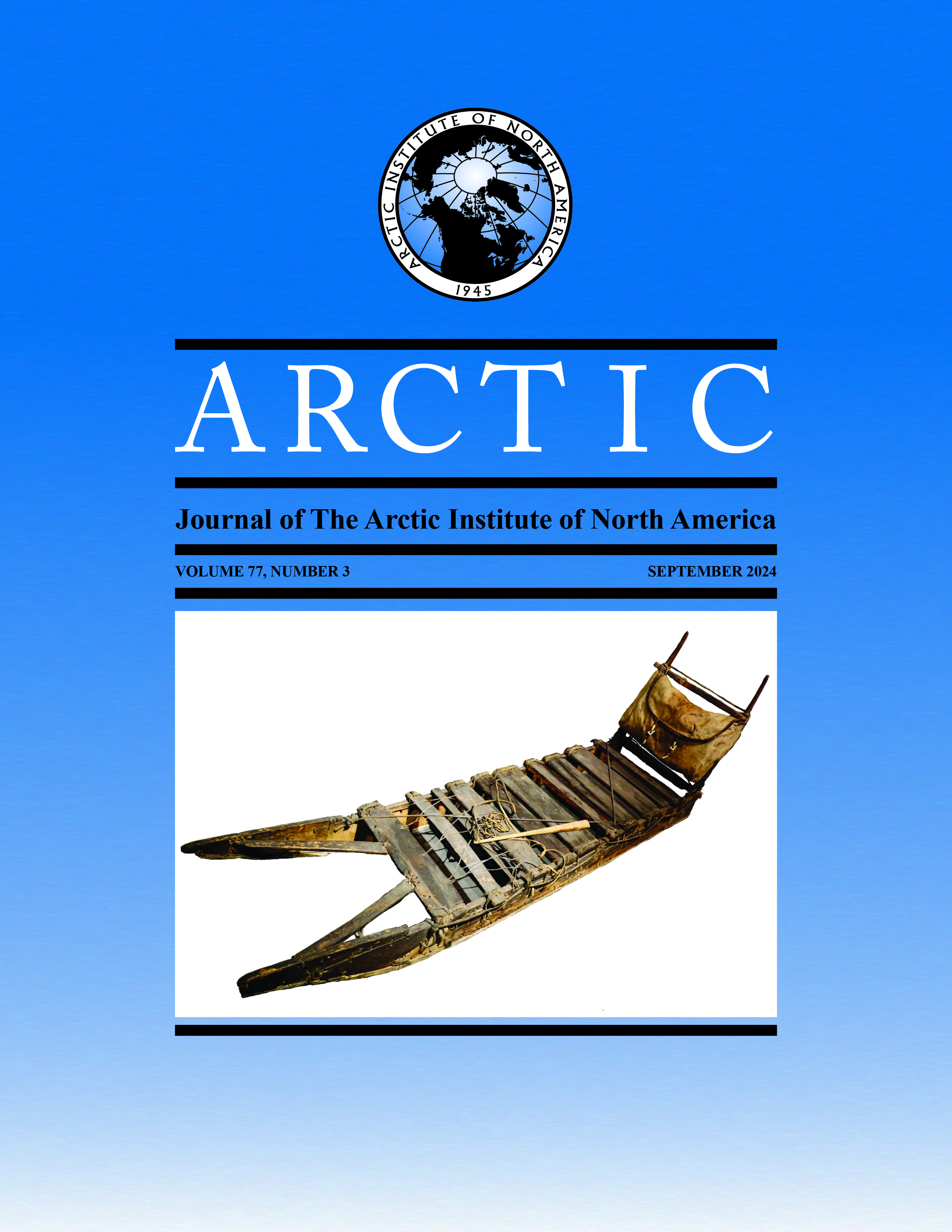Reshaping Research Paradigms: Insights from a Large-Scale Project Based in Nunatsiavut, Labrador, Canada
DOI:
https://doi.org/10.14430/arctic80841Keywords:
Nunatsiavut; community engagement; land – sea connection; climate change; Arctic; Inuit self-determinationAbstract
Across Inuit Nunangat (the Inuit homelands of Canada) researchers have been called to engage ethically and meaningfully with community members to develop projects that support local goals. This article focuses on understanding such engagement in the context of Nunatsiavut, an Inuit-governed territory in the province of Newfoundland and Labrador, Canada. In 2022 we conducted 27 interviews with researchers (both southern- and community-based), Inuit government representatives, and NGO representatives associated with the transdisciplinary SakKijânginnaKullugit Nunatsiavut Sivunitsangit (Sustainable Nunatsiavut Futures [SNF]) Project. SakKijânginnaKullugit Nunatsiavut Sivunitsangit began in 2020 and was designed, in part, to facilitate the co-production of knowledge between researchers and community members about climatic changes in Nunatsiavut. Through interviews, we explored what ethical and meaningful community engagement means in the context of a large-scale transdisciplinary project. Drawing on an analysis of interview data, we examine how project members and partners engage with Inuit community members, and how members of the project team who are Inuit have experienced these engagements. Based on participant responses, we identified elements needed for, and barriers to, ethical and meaningful engagement. We also heard about possible solutions. University researchers described institutional constraints to long-term engagement, while members of the Nunatsiavut Government staff and Inuit research coordinators emphasized that extractive (one-sided) forms of engagement can negatively impact communities. Interviewees described how a) restructuring academic and funding institutions, b) broadening engagement methods, and c) scaling down within a project can minimize the likelihood of negative effects and lead to more ethical and meaningful community engagement.
Published
Issue
Section
License
Copyright (c) 2025 ARCTIC

This work is licensed under a Creative Commons Attribution 4.0 International License.


